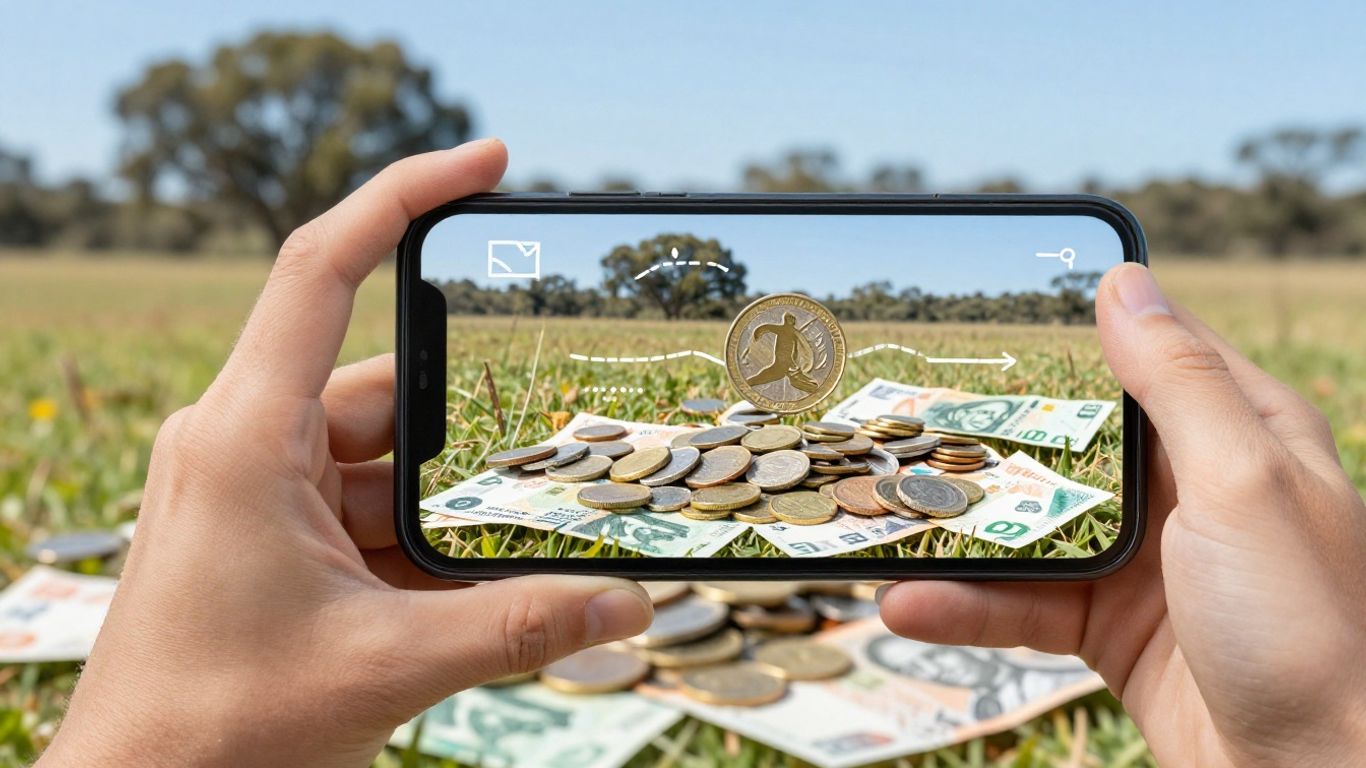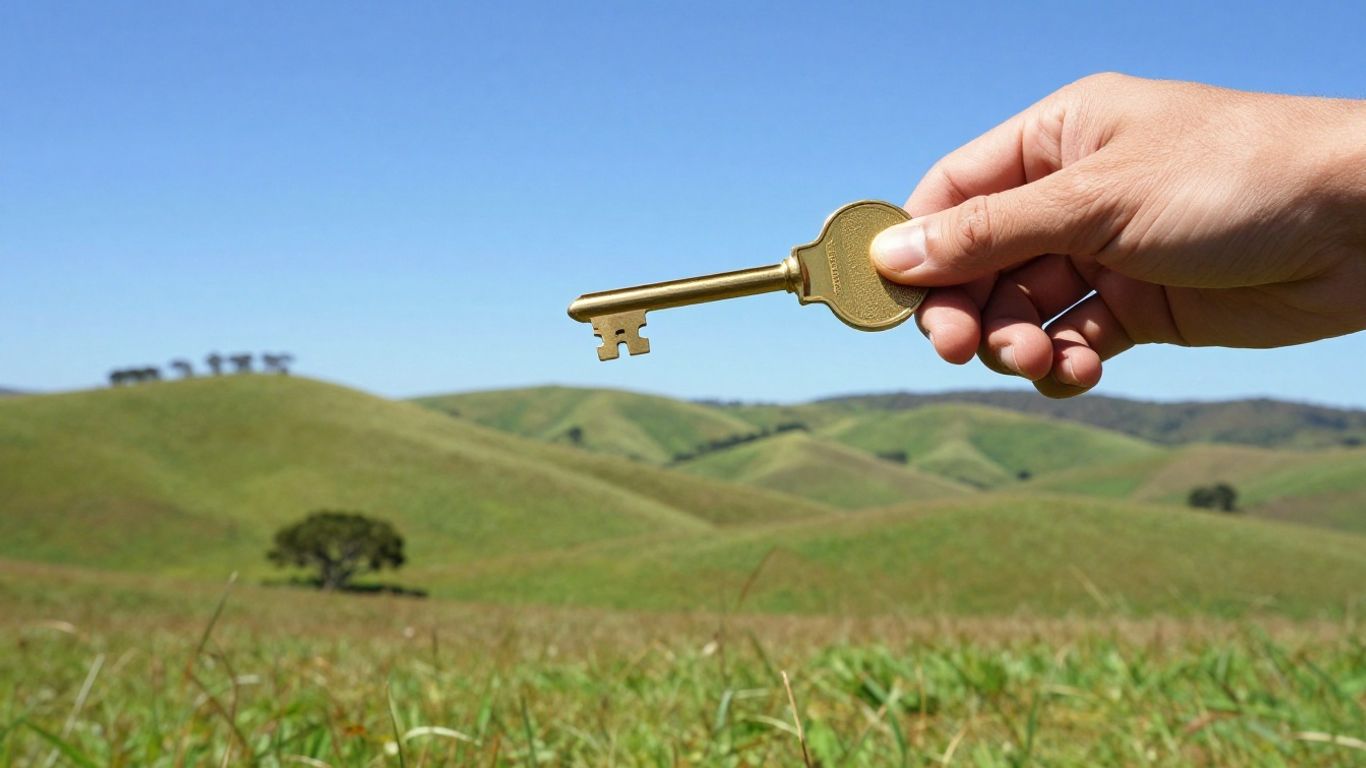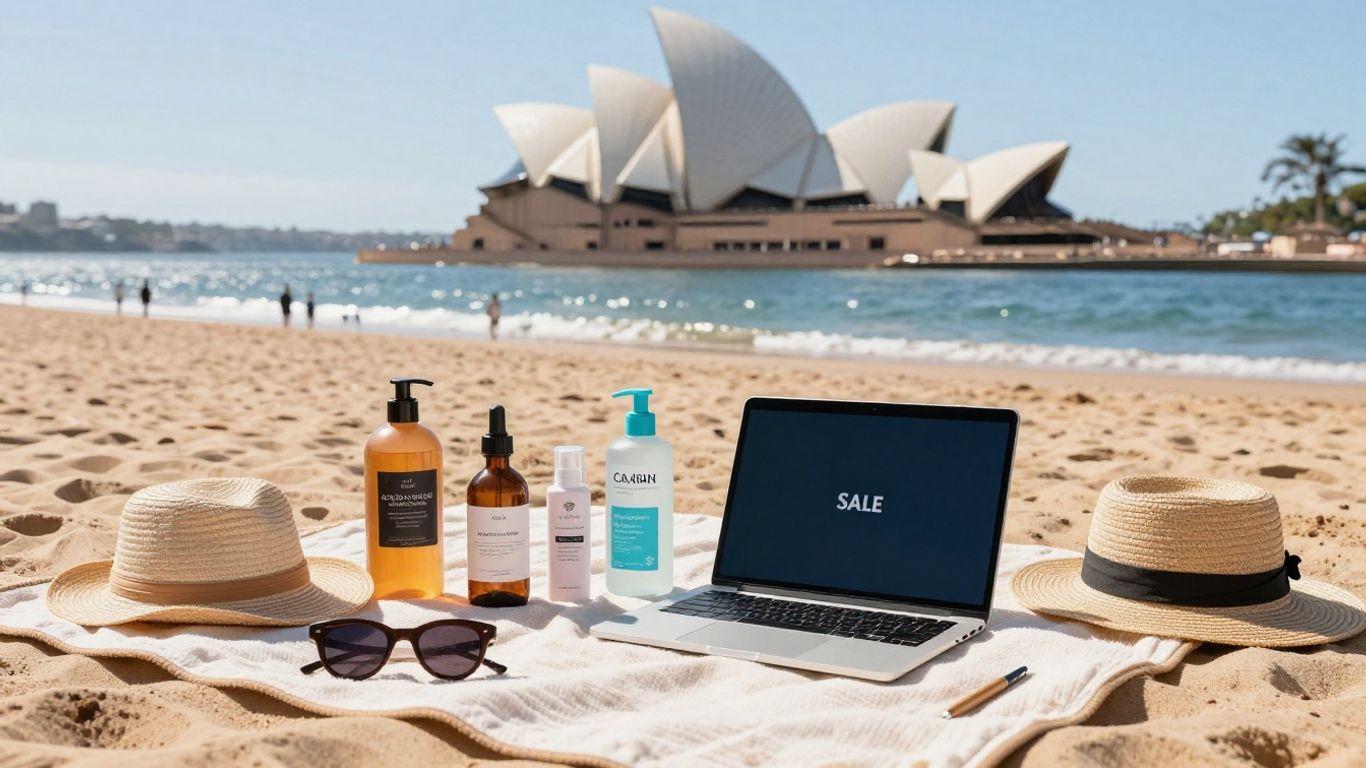G’day, mates! Feeling the pinch from rising prices? You’re not alone. We’ve all been there, wondering how to make our hard-earned cash stretch further without feeling like we’re missing out on the good stuff. Well, chuck a U-ey on overspending because I’ve got some fair dinkum good money saving tips specifically for us Aussies. Let’s get stuck into some ripper ways to save a few bucks and still enjoy the great Aussie lifestyle.
Key Takeaways
- Everyday frugal tips can make a big difference to your wallet.
- Small changes in spending habits add up over time.
- Being smart with your money doesn’t mean missing out on fun.
- Look for Aussie-specific ways to save cash.
- You can live well without breaking the bank.
Mastering Your Tucker Budget
Let’s face it, we Aussies love our tucker! But all those sausage rolls and meat pies from the servo can really hit the hip pocket hard. Getting on top of your food budget is a top way to save some serious coin. It’s all about being a bit clever when you’re doing the shopping and getting a bit creative in the kitchen, mate.
Smart Choices at the Supermarket
The supermarket can be a real minefield of temptations, full of things you don’t need. Here’s how to tackle it like a pro:
- Make a list and stick to it like glue: This is the golden rule, no worries. Plan your meals for the week and only buy what you actually need. Impulse buys are the enemy, I tell ya!
- Compare prices, don’t be shy: Don’t just grab the first thing you see, have a look around. Check the unit prices to see which option is actually the cheapest. Supermarkets often have weekly specials, so keep your eyes peeled for those.
- Shop seasonally, it’s the way to go: Fruit and veggies that are in season are usually cheaper and taste better. Plus, you’re giving a fair go to our local farmers!
Cooking Up Savings at Home
Cooking at home is where the real savings are at. Ditch the takeaway and get your MasterChef on! Here’s how:
- Plan your meals for the week: Knowing what you’re going to cook each night stops you from ordering in when you’re tired and hangry.
- Embrace the slow cooker: Chuck in some cheap cuts of meat and veggies in the morning, and you’ll have a delicious, budget-friendly meal waiting for you when you get home.
- Get creative with spices and herbs: A few simple ingredients can be transformed into a gourmet meal with the right flavourings. Grow your own herbs for extra savings!
Leftovers Are Your Mates
Don’t chuck those leftovers in the bin! They’re a goldmine of potential meals. Here’s how to make the most of them:
- Turn them into lunch: Leftover roast chicken makes a ripper sandwich filling. Leftover pasta can be reheated or turned into a pasta salad.
- Freeze them for later: If you’re not going to eat them within a couple of days, freeze them for a quick and easy meal on a busy night. Label them clearly so you know what’s inside!
- Get creative with new dishes: Leftover veggies can be added to soups, stews, or omelettes. Leftover rice can be used to make fried rice or rice pudding.
It’s easy to think those small purchases don’t matter, but they add up quicker than you think. Being mindful of every dollar, no matter how small, is key to keeping your finances on track. Those servo trips for a cheeky pie? They’re the silent killers of a good budget.
Savvy Spending on the Daily
Cutting Down on Little Luxuries
Okay, so we all love a bit of pampering, right? But those daily coffees, sneaky chocolates, and impulse buys? They add up faster than you can say ‘fair dinkum’! The key is to identify those little luxuries and see where you can trim the fat. Maybe brew your own coffee at home (it’s way cheaper, and you can even get fancy with a French press!), or swap that afternoon chocolate bar for a piece of fruit. Small changes, big savings, mate!
- Track your daily spending for a week. You might be surprised where your money is going.
- Set a daily spending limit and stick to it. Use a budgeting app to help you stay on track.
- Find free or cheaper alternatives to your favourite luxuries. For example, read a book from the library instead of buying a new one.
It’s not about depriving yourself completely, it’s about being mindful of where your money is going. A little bit of planning can make a huge difference to your bank balance. Think of it as investing in your future, one less latte at a time.
Hunting for Bargains
Alright, listen up, bargain hunters! Scoring a good deal is like winning the lotto, but without actually buying a ticket. There are heaps of ways to find bargains if you know where to look. Op shops are goldmines for pre-loved clothes and homewares. Keep an eye out for sales and discounts at your favourite stores. And don’t be afraid to haggle – it’s part of the Aussie spirit! You can find great property deals if you know where to look.
- Check online marketplaces like Gumtree and Facebook Marketplace for second-hand goods.
- Sign up for email newsletters from your favourite stores to receive exclusive discounts.
- Use price comparison websites to find the best deals on everything from groceries to electronics.
Mindful Money Habits
It’s easy to get caught up in the daily grind and not really think about where your money is going. But developing mindful money habits can make a huge difference to your financial well-being. Start by creating a budget and tracking your spending. This will help you identify areas where you can cut back and save money. Avoid impulse buys by waiting 24 hours before purchasing anything that isn’t essential. And remember, every little bit counts!
Here’s a simple table to help you track your spending:
| Item | Estimated Cost | Actual Cost | Difference |
|---|---|---|---|
| Coffee | $20 | $30 | -$10 |
| Lunch | $50 | $60 | -$10 |
| Entertainment | $100 | $80 | +$20 |
Consider setting up a savings account to help you reach your financial goals.
Frugal Fun and Entertainment

Barbecue on a Budget
Right, let’s talk barbies. We all love chucking a few snags on the grill, but it can get exy quick. The secret is being a bit strategic about it. Ditch the fancy cuts of meat and go for sausages or chicken drumsticks. Marinate them well, and they’ll be just as tasty, promise! Bulk up the meal with some homemade salads – potato salad or coleslaw are way cheaper than those tubs from the supermarket. And don’t forget the bread rolls to soak up all the juices.
- Buy meat in bulk when it’s on special and freeze it for later.
- Make your own marinades and sauces – they taste better and save you a few bob.
- Grow your own herbs to add flavour without spending a fortune.
Remember, a barbie is about good company and good times, not about showing off how much you can spend. Keep it simple, keep it fun, and your wallet will thank you.
Free Activities for the Family
Australia’s chockers with free stuff to do, you just gotta know where to look! Head to the beach – swimming, surfing, or just soaking up the sun is completely free. Check out your local parks and gardens for a picnic or a bushwalk. Heaps of cities and towns have free events and festivals throughout the year, so keep an eye on the local council website. Libraries are goldmines too – borrow books, movies, and even attend free workshops. You can find local events happening near you.
- Explore national parks – many have free entry days.
- Go for a bike ride along a scenic route.
- Visit local museums and art galleries – some offer free admission.
DIY Entertainment
Who needs to spend a fortune on entertainment when you can create your own fun at home? Dust off those board games, get the family together for a movie night, or have a crack at a new hobby. Get crafty and try your hand at painting, knitting, or even building something. You could even host a themed party with your mates – everyone brings a dish, and you’ve got a ripper night without breaking the bank. Get creative and think outside the box – the possibilities are endless!
- Host a potluck dinner with friends.
- Start a book club.
- Learn a new skill online – there are heaps of free tutorials available.
Trimming Down Household Bills

Energy Efficiency Hacks
Right, let’s get down to brass tacks about cutting those power bills. It’s not just about hugging trees; it’s about keeping more of your hard-earned dosh in your wallet. One of the easiest wins is switching to LED light globes. Those old incandescent ones are energy guzzlers, LEDs are the way to go – they last longer and use way less juice.
Here’s a few more ideas:
- Unplug appliances: Don’t leave your telly, microwave, or phone charger plugged in when you’re not using them. They still suck power even when they’re off. It’s called "phantom load," and it’s a sneaky bill booster.
- Smart power strips: Get yourself some smart power strips. They can detect when an appliance isn’t in use and cut off the power supply.
- Check your insulation: Make sure your home is properly insulated. This will keep it warmer in winter and cooler in summer, reducing the need for heating and cooling.
I remember when I finally got around to insulating my roof. The difference was huge! My energy bills dropped noticeably. It’s an investment that pays for itself pretty quickly.
Water Wise Ways
Water bills can be a real killer, especially during those scorching Aussie summers. But there are plenty of ways to be water-wise without sacrificing your lifestyle. You can save water by implementing a few simple changes.
- Shorten your showers: Aim for a four-minute shower. It might not sound like much, but it can save a surprising amount of water.
- Fix leaky taps: A dripping tap might seem like a minor issue, but it can waste litres of water over time. Get it fixed pronto!
- Install a water-efficient showerhead: These showerheads use less water without compromising on water pressure.
Negotiating Better Deals
Don’t be a galah and just accept the first price you’re given! Whether it’s your internet, phone, or insurance, there’s always room to haggle. A little bit of cheek can save you a fair whack of cash. Here’s how to get started:
- Do your research: Before you call, check out what other providers are offering. Knowledge is power!
- Be polite but firm: Explain that you’re a loyal customer but you’ve found a better deal elsewhere. See if they can match it or beat it.
- Don’t be afraid to walk away: If they won’t budge, tell them you’re going to switch providers. Sometimes that’s all it takes to get them to reconsider.
| Service | Potential Savings | Requires Effort | Negotiation Difficulty |
|---|---|---|---|
| Internet | $10-30/month | Yes | Medium |
| Mobile Phone | $5-20/month | Yes | Low |
| Home Insurance | $50-200/year | Yes | Medium |
Smart Transport Choices
Public Transport Perks
Public transport in Australia can be a real money-saver, especially if you’re in a major city. Consider getting a weekly or monthly pass if you use it regularly. It often works out cheaper than paying for individual trips. Plus, you avoid the hassle of parking and traffic. Here’s a quick rundown of potential savings:
- Daily commute: $10 (car) vs. $5 (public transport)
- Weekly savings: $50 – that’s enough for a decent pub meal!
- Monthly savings: $200 – hello, weekend getaway!
It’s easy to overlook the small savings from using public transport, but they add up quickly. Think of it as a sneaky way to boost your budget without sacrificing your lifestyle.
Walking and Cycling for Dosh
Alright, let’s get real – walking and cycling are not only good for your health, but they’re also fantastic for your wallet. Ditch the car for short trips and you’ll be amazed at how much you save on fuel and parking. Plus, you get some exercise in! Consider these points:
- No fuel costs: Obvious, but worth stating.
- No parking fees: A massive win in city centres.
- Health benefits: Fewer doctor visits down the track.
Carpooling for the Win
Carpooling is a ripper way to save money and reduce your carbon footprint. Find some workmates or neighbours who live nearby and share the driving. You can split the fuel costs and parking fees, making it a win-win for everyone. Plus, it’s a good chance to have a yarn and make new mates. Here’s how it breaks down:
- Fuel cost split: If four people carpool, each person pays only 25% of the fuel.
- Parking cost split: Same deal with parking fees.
- Reduced wear and tear: Less driving means less maintenance on your own car.
Consider using public transport to save money on your daily commute.
Getting Your Finances Shipshape
Budgeting Like a Boss
Alright, let’s get real about budgeting. It’s not about deprivation; it’s about knowing where your hard-earned dosh is going. Think of it as giving your money a job, rather than letting it wander off aimlessly.
- Start simple: Grab a notebook or use a budgeting app. List your income and expenses. Be honest, even about those sneaky sausage rolls from the servo.
- Categorise your spending: Rent, food, transport, entertainment – break it down to see where your money’s disappearing.
- Set realistic limits: Don’t aim for perfection straight away. Small, achievable goals are the key.
Budgeting isn’t a punishment; it’s a roadmap. It shows you where you are, where you want to go, and how to get there. It’s about taking control, not feeling controlled.
Tracking Your Spending
So, you’ve got a budget, ripper! Now, how do you make sure you’re sticking to it? Tracking your spending is the answer. It’s like being a detective, following the trail of your dollars. You can use a spreadsheet, an app, or even just jot things down in a notebook. The important thing is to be consistent. Check out financial planning tips to help you stay on track.
Here’s a simple way to track your spending:
- Record every expense: Every coffee, every bus ticket, every online purchase. No exceptions.
- Categorise each expense: Match it to your budget categories (food, transport, etc.).
- Review regularly: At the end of each week (or month), see how your actual spending compares to your budget. Where did you overspend? Where did you underspend?
Setting Financial Goals
What do you actually want your money to do for you? That’s where financial goals come in. They give you something to aim for, something to motivate you to stick to your budget and track your spending.
Here are some examples of financial goals:
- Saving for a deposit on a house.
- Paying off debt (credit cards, personal loans, etc.).
- Building an emergency fund.
- Investing for retirement.
Make sure your goals are SMART:
- Specific: What exactly do you want to achieve?
- Measurable: How will you know when you’ve achieved it?
- Achievable: Is it realistic, given your current income and expenses?
- Relevant: Does it align with your values and priorities?
- Time-bound: When do you want to achieve it by?
Making Your Money Work Harder
Alright, so you’ve been saving a bit of coin, good on ya! But what if you could make that money really work for you, like a boomerang that keeps coming back with more mates? It’s not just about stashing it under the mattress; it’s about being strategic. Let’s have a yarn about how to get your finances shipshape and make your money sweat.
Building an Emergency Fund
Life throws curveballs, right? The car konks out, the fridge dies, or you might need to cover unexpected medical bills. That’s where an emergency fund comes in handy. Aim to have at least 3-6 months’ worth of living expenses tucked away in an easily accessible account. It’s your financial safety net, giving you peace of mind when things go pear-shaped.
- Start small: Even $20 a week adds up. Think of it as paying yourself first.
- Keep it separate: Don’t mix it with your everyday spending money.
- Resist the urge to dip in: Only use it for genuine emergencies, not that new telly you’ve been eyeing off.
I reckon having an emergency fund is like having a spare tyre in the boot. You hope you never need it, but you’ll be mighty glad it’s there when you do.
Smart Saving Strategies
Saving doesn’t have to be a drag. There are plenty of clever ways to boost your savings without feeling like you’re missing out.
- Automate your savings: Set up a direct debit to move a portion of your pay into a savings account before you even see it. Out of sight, out of mind!
- Round up your purchases: Use an app that rounds up your purchases to the nearest dollar and puts the spare change into a savings account. It’s like finding money you didn’t know you had.
- Ditch the daily coffee: Making your own cuppa at home can save you a surprising amount over the course of a year. Plus, you can perfect your barista skills.
Investing for the Future
Investing can seem daunting, but it’s one of the best ways to grow your wealth over the long term. It’s about planting seeds now so you can reap the rewards later.
- Do your research: Understand the different types of investments and the risks involved. Don’t just follow the herd.
- Start small: You don’t need a fortune to start investing. Many platforms allow you to invest with small amounts.
- Diversify: Don’t put all your eggs in one basket. Spread your investments across different asset classes to reduce risk.
| Investment Type | Potential Return | Risk Level | Notes
Wrapping It Up: Your Money, Your Rules
So there you have it. Getting your money sorted isn’t about being a tight-arse or missing out on fun. It’s about being smart with your cash so you can actually enjoy life without constantly stressing about bills. Think of these tips as a starting point, not a strict rulebook. Pick a few that make sense for you, give ’em a go, and see what happens. You might be surprised how much extra cash you find in your pocket. Every little bit helps, and before you know it, you’ll be feeling much better about your finances. Good on ya for giving it a crack!
Frequently Asked Questions
Are these tips only for city slickers, or can folks in regional areas use ’em too?
Nah, not really. While some tips might be more useful in the city, most of these money-saving ideas work no matter if you’re in Sydney or way out in the bush. It’s all about being smart with your cash, mate.
Will following these tips really make a big difference to my wallet?
Absolutely! Being thrifty isn’t just about saving a few bucks here and there; it’s about making your money go further so you can enjoy life more. Think of it as getting more bang for your buck.
I’m a bit overwhelmed. Where should I even begin with all this saving stuff?
It’s super easy to get started. Just pick one or two tips that seem simple to try first, like planning your meals or looking for deals. Once you get the hang of it, you can add more. No need to go all-in at once!
Does being frugal mean I can’t have any fun or buy anything nice?
Not at all! Being smart with your money means you can still have a great time and buy things you like. It’s about making good choices and getting the best value, not about missing out.
Are these money-saving tips really good for Aussies, or are they just general advice?
You bet! These tips are designed with the Aussie lifestyle in mind, from snagging a bargain at the local market to making the most of our great outdoors without spending a fortune. We’ve got unique ways to save here.
How often should I review my budget and spending to make sure I’m on track?
It’s a good idea to check in with your budget and spending habits at least once a month. This helps you see where your money is going and if you’re sticking to your goals. A quick look can save you a heap in the long run!





